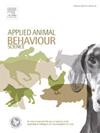Zoos and other organisations with living world impacts should have honest policies
IF 2.2
2区 农林科学
Q1 AGRICULTURE, DAIRY & ANIMAL SCIENCE
引用次数: 0
Abstract
To balance action and publicly stated intention is a problem for zoos, as it is for most commercial organisations. The public now want activities that are sustainable in all aspects, including good welfare of animals where these are a part of the business. They also want transparency and evidence for whatever is claimed. Policy statements by organisations that use or have impact on animals or plants may give an incorrect impression of actual world consequences. The efforts of zoos to present themselves as significant contributors to conservation, education and research are examined and found to be often misleading. Although this comment applies to almost all zoos, in accuracy of claims as in quality of keeping conditions and welfare of the animals, the best zoos are much better than the worst zoos. A factor underlying many visits by the public to zoos is biophilia, a desire to experience the presence and observe the behaviour of living animals, but this is greatly undermined if it is perceived that the needs of individual animals are not met, and their welfare is poor. The differences in behaviour and physiological functioning between zoo and wild animals are briefly examined in order to consider what actions are ethical, in particular in relation to the welfare of the animals. The policies adopted by zoos have to keep pace with the changing demands of the public and zoos have opportunities to have positive effects on sustainability and the current rapid decline in most of the natural world. Some zoos are starting to do this but, in order for zoos and other organisations using animals and plants to remain sustainable, the image of their own activities that they present should be honest and closely related to the public’s demand. In particular the public need evidence, from their own observations and from good quality scientific studies, of good welfare of animals that are kept and of other components of sustainability.
动物园和其他对生物世界有影响的组织应制定诚实的政策
对于动物园来说,平衡行动和公开表达的意图是一个问题,就像大多数商业组织一样。公众现在希望活动在各个方面都是可持续的,包括良好的动物福利,这是商业的一部分。他们还要求透明度和证据,无论声称什么。使用或影响动物或植物的组织的政策声明可能会对实际的世界后果产生错误的印象。动物园把自己标榜为保护、教育和研究的重要贡献者的努力受到了检验,发现往往是误导。虽然这句话几乎适用于所有的动物园,但在声明的准确性、饲养条件的质量和动物的福利方面,最好的动物园比最差的动物园要好得多。许多公众参观动物园的一个潜在因素是对生物的喜爱,一种体验活体动物的存在和观察其行为的渴望,但如果人们认为单个动物的需求得不到满足,它们的福利很差,这种渴望就会大大削弱。在动物园和野生动物之间的行为和生理功能的差异简要检查,以考虑什么行为是道德的,特别是在动物的福利。动物园采取的政策必须跟上公众不断变化的需求,动物园有机会对可持续性和目前大多数自然世界的快速下降产生积极影响。一些动物园已经开始这么做了,但为了让动物园和其他使用动植物的组织保持可持续发展,他们所展示的自己的活动形象应该是诚实的,并与公众的需求密切相关。公众尤其需要从他们自己的观察和高质量的科学研究中获得证据,证明所饲养的动物的良好福利和可持续性的其他组成部分。
本文章由计算机程序翻译,如有差异,请以英文原文为准。
求助全文
约1分钟内获得全文
求助全文
来源期刊

Applied Animal Behaviour Science
农林科学-行为科学
CiteScore
4.40
自引率
21.70%
发文量
191
审稿时长
18.1 weeks
期刊介绍:
This journal publishes relevant information on the behaviour of domesticated and utilized animals.
Topics covered include:
-Behaviour of farm, zoo and laboratory animals in relation to animal management and welfare
-Behaviour of companion animals in relation to behavioural problems, for example, in relation to the training of dogs for different purposes, in relation to behavioural problems
-Studies of the behaviour of wild animals when these studies are relevant from an applied perspective, for example in relation to wildlife management, pest management or nature conservation
-Methodological studies within relevant fields
The principal subjects are farm, companion and laboratory animals, including, of course, poultry. The journal also deals with the following animal subjects:
-Those involved in any farming system, e.g. deer, rabbits and fur-bearing animals
-Those in ANY form of confinement, e.g. zoos, safari parks and other forms of display
-Feral animals, and any animal species which impinge on farming operations, e.g. as causes of loss or damage
-Species used for hunting, recreation etc. may also be considered as acceptable subjects in some instances
-Laboratory animals, if the material relates to their behavioural requirements
 求助内容:
求助内容: 应助结果提醒方式:
应助结果提醒方式:


